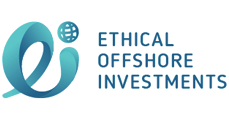How to avoid making mistakes with your investments
Christina Kubu– published by FundCalibre

Over the long term, investing can be a very rewarding journey. But it can also be a perilous one, with plenty of potential pitfalls for the unwary. Some of these are caused by unexpected events that are out of everyone’s control. Others, however, are due to avoidable mistakes.
Here, we outline some of the most common errors that can deal a punishing blow to your investment portfolio.
Trying to time the market
Buying into the stock market at its lowest point and selling when it hits highs is the ideal scenario for any investor. Unfortunately, these points are impossible to accurately predict.
No-one knows for sure when the bottom and top points have been reached. That’s why the old saying that, “Time in the market is more important than timing the market,” rings true.
The best approach is to invest for the long-term and avoid becoming overly concerned by peaks and troughs encountered along the way.
Buying past performance
A fund may have delivered spectacular returns over the past few years – but that doesn’t mean it can be repeated. Its performance may have been down to the manager’s style being in favour, benefitting from global economic events, or a surging stock market lifting all share prices.
While a manager’s track record in different environments is worth considering, a fund’s recent performance is only one piece of evidence to bear in mind.
Not revisiting your portfolio
You may have spent a long time constructing the perfect portfolio – but it’s vital to review your investment decisions regularly to ensure it is performing as expected.
Everything is constantly changing: the performance of companies and funds, the global economic conditions, and your financial requirements. Ideally, you should carry out a full portfolio analysis every year but be prepared to make alterations more regularly should there be a change in circumstances.
Failing to consider your needs
We all have different reasons for investing. Some of us want to generate a particular sum for a purpose such as buying a house or securing a comfortable retirement. Others may need a regular monthly income to help cover day-to-day living costs. This is particularly important when the cost of living is rising.
Don’t worry about what other people are doing – you’ll need to factor your own requirements, reasons for investing, and attitude to risk into your investment decisions ,as this will dictate which products are most suitable.
Not being diversified
Pinning all your hopes on one or two investments is very dangerous. While you stand to benefit if they perform strongly, if they underperform it may leave you very exposed.
Diversifying your overall portfolio in terms of exposure to uncorrelated asset classes and funds is a less risky strategy for longer-term investing. The hope is that not all investment types will fall at the same time or to the same magnitude.
Not having a safety net
A golden rule is not to invest what you can’t afford to lose. Of course, no-one wants to see their portfolio’s value plummet, but it all depends on how you’d be impacted. If you’ve put every last penny into the investment then the chances are that you’ll be seriously affected by such a fall, even if it’s relatively short-lived. That’s why it’s vital to have some money in easy access savings accounts as a back-up.
So-called rainy day funds will give you confidence to ride out challenging markets.
Being too greedy
When a stock market position is soaring, it can be very tempting to stay invested in the hope of enjoying even greater gains. However, leave it too long and it may start a rapid decline. This is where being too greedy could potentially cost you. Bagging a decent profit – even if it ends up being lower than it might have been – is a win and can help fund your next purchase so should be considered.
Overlooking fund charges
You overlook fund charges at your peril as they can seriously affect returns. In the worst cases they can be enough to wipe out much of your profit. It’s particularly important to establish whether the portfolio manager will qualify for a bonus from you in the form of a performance fee for beating targets.
Pay close attention to the general fees and bear in mind that multimanager products will usually be more expensive as they are investing in other funds.
Reducing your Investment Costs…. more money stays in your pocket.
Quitting an investment too early
Short-term underperformance can be a red flag, but you shouldn’t bring the axe down on a fund until you know what’s happened. For example, it may have performed badly because its investment style or focus was out of favour, rather than being down to the manager’s mistakes. That’s why the returns generated – or losses sustained – should be considered in context and not viewed in isolation.
Overlooking fund focus
No two funds are identical. Even those apparently investing in the same type of asset class and size of company could be run very differently. One manager may prefer to buy businesses that are at the top of their game and the market leader in their particular field.
Others, meanwhile, may take a contrarian approach and only choose stocks that have underperformed or fallen out of favour with the market.
Ignoring investment style
There are various investment styles. For example, some funds may have a growth focus which sees them investing in ambitious companies that are focused on expansion. Others may be income oriented and put their money into established stocks that have a reliable track record of paying dividends to investors.
You’ll need to decide your preferred investment style from the outset and then pick your manager from those following this discipline.
Falling for marketing hype
Fund management companies want you to buy into their funds so it’s important not to unquestioningly fall for marketing hype. The product in question may be unsuitable for your needs, have a track record of underperforming, or be likely to underperform in the current environment.
Careful research is required to ensure you’re making the right calls in terms of both your own objectives and the fund itself.
Photo by Sarah Kilian on Unsplash
This article is provided for information only. The views of the author and any people quoted are their own and do not constitute financial advice. The content is not intended to be a personal recommendation to buy or sell any fund or trust, or to adopt a particular investment strategy. However, the knowledge that professional analysts have analysed a fund or trust in depth before assigning them a rating can be a valuable additional filter for anyone looking to make their own decisions. Past performance is not a reliable guide to future returns. Market and exchange-rate movements may cause the value of investments to go down as well as up. Yields will fluctuate and so income from investments is variable and not guaranteed. You may not get back the amount originally invested. Tax treatment depends of your individual circumstances and may be subject to change in the future. If you are unsure about the suitability of any investment you should seek professional advice. Whilst FundCalibre provides product information, guidance and fund research we cannot know which of these products or funds, if any, are suitable for your particular circumstances and must leave that judgement to you. Before you make any investment decision, make sure you’re comfortable and fully understand the risks.
Please note the above article was first published by Fund Calibre and should not be regarded as individual investment advice on whether to buy, sell or hold any investments or investment styles mentioned. Please speak to Ethical Offshore Investors or your personal adviser BEFORE you make any investment decision based on the information contained within this article.
At Ethical Offshore Investments, we can access the funds mentioned in this article on the various offshore investment platforms we offer. We do NOT CHARGE any additional entry and/or exit fees to purchase these funds for our clients.
As we aim not to use commission paying funds, we will access the lowest charging version of the managed fund that is available on the relevant platform…… resulting in more of the investment growth staying in your pocket.
Speak with Ethical Offshore Investments to learn how you can save on your investments costs by investing via Ethical Offshore.
Socially Responsible Investing – Ethical Business Standards
